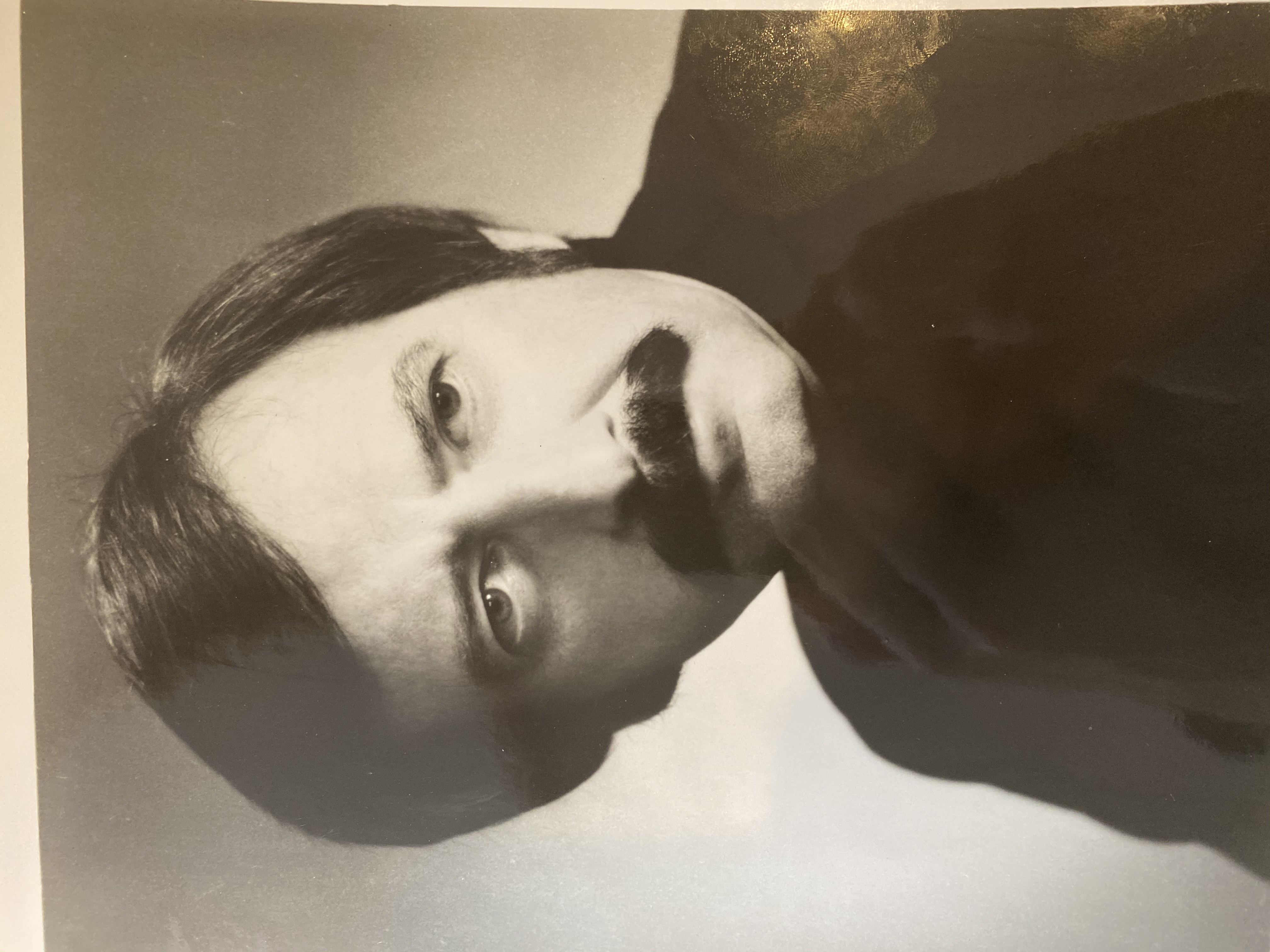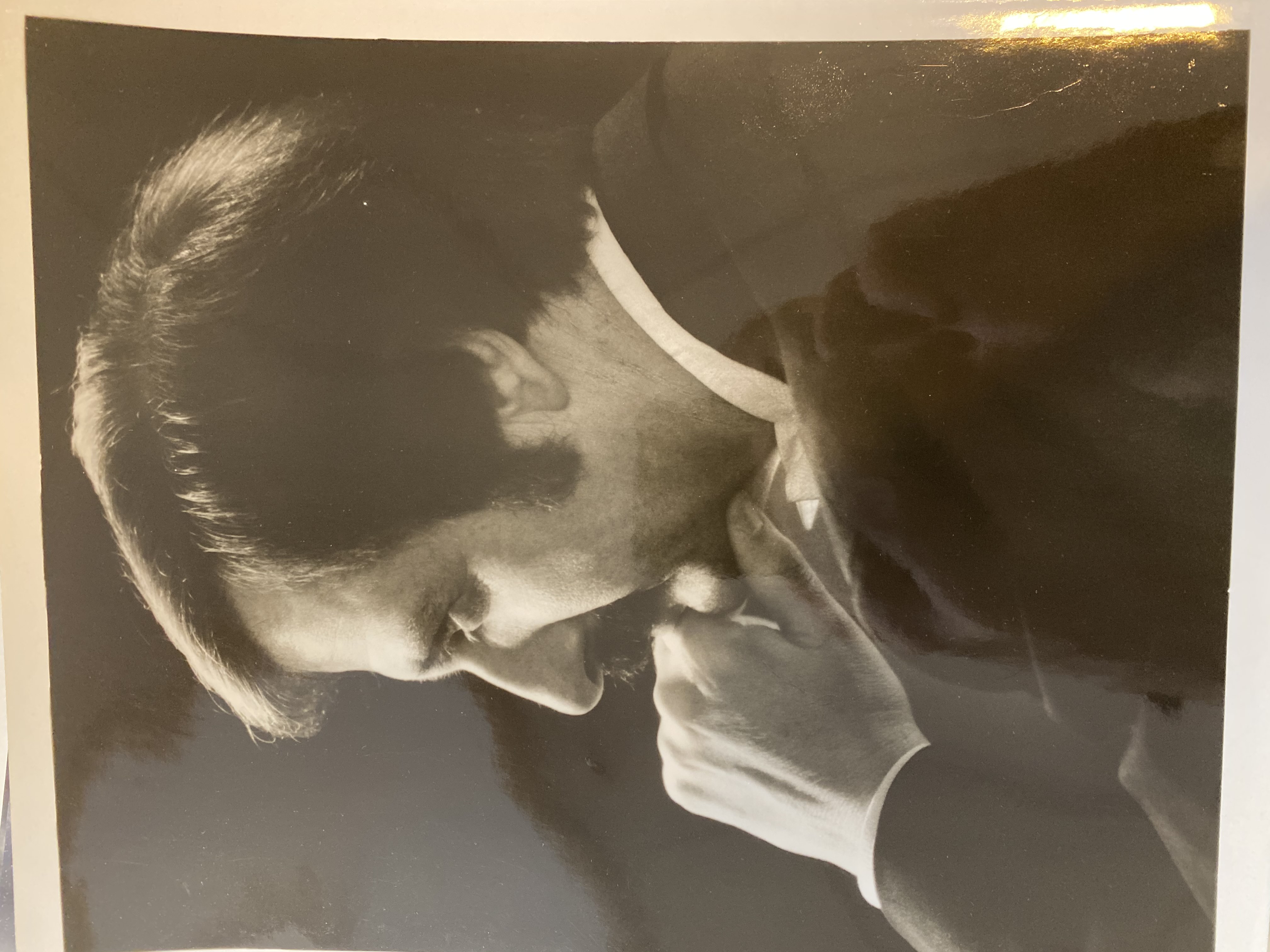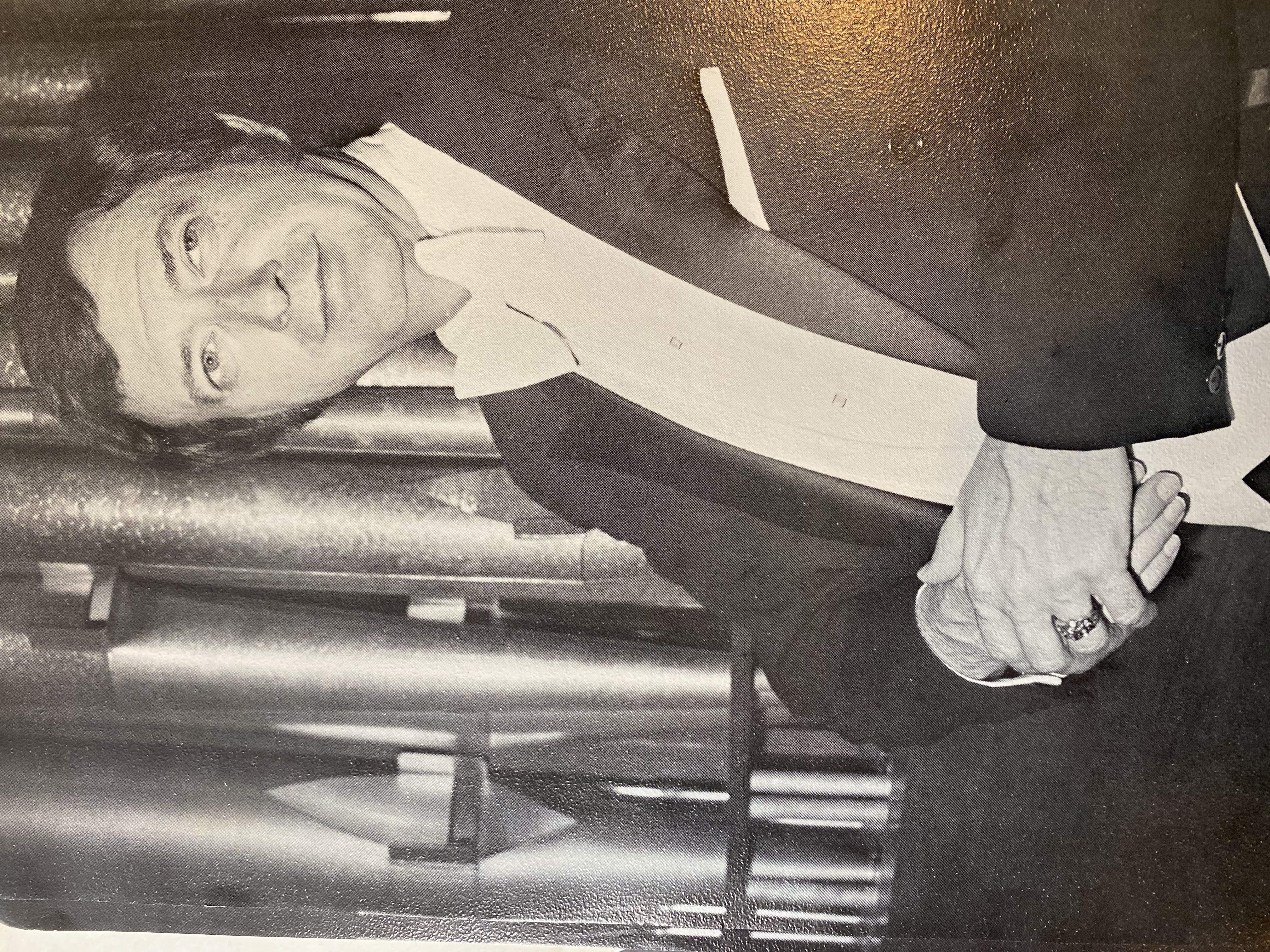A fond memorial: Richard Forrest Woods (July 26, 1929 – May 15, 1993)
 Thursday, October 14, 2010 at 11:19AM
Thursday, October 14, 2010 at 11:19AM
Dick Woods never tired of the beautiful and the excellent. He worked and worked to get a sound just so, and it paid off. He ended up with the finest church choir in Texas (thank you very much), for which I was privileged to serve as Assistant Organist for four years. Dick was a musico-liturgical conservative, but he was progressive in knowing that there is room for everyone in church music. He found a way to maintain excellence and still avoid being classified as snobbish, surely the most delicate balance a church musician can strike, and a particularly difficult task for Dick’s generation.

Dick’s funeral was beautiful. I will never forget that hour with so many current and former choir members in attendance, vested and singing the Vaughan Williams O how amiable, the Tallis If ye love me, and the Mendelssohn He that shall endure, among others. I still see some of the choir members each year; we celebrate Dick’s birthday with Mexican food. (He still draws a crowd!)
Richard Forrest Woods was of “Pennsylvania Dutch” heritage. He studied with Marshall Bidwell at the Carnegie Institute before serving in the Navy band and attending Tulane University. From 1962-1964, he studied in Paris with Boulanger, Langlais and Marchal, and was among the first four Americans to receive the Diplôme Schola Cantorum. Dick served as parish musician at St. James (Wichita), the Cathedral of the Holy Angels (Gary), and St. John the Divine (Houston). Prior to Houston, he served as Professor of Music at the Episcopal Theological Seminary of the Southwest.

[Update: On September 30, 2014, I discovered some of Dick's notations in his copy of the 1945 Prayer Book, which indicated the date he acquired the book (1949), plus some additional church positions he held: Trinity Chapel (Sharpsburg, PA), Grace Church (New Orleans), St. David's (Austin), and St. Matthew's (Austin). Obviously, the church positions were added as he served. He was only 20 years old when he acquired the book. There is also the signature of The Rt. Rev. Girault M. Jones, Bishop of Louisiana, dated April 7, 1957.]
Dick’s death left the choir with me – a 25-year-old whippersnapper with 1) a Baptist background, 2) no idea how to deal with a death like this, and sometimes 3) little more than the knowledge that the show must go on. The choir turned their full support to me, and we managed just fine in the interim, making beautiful music each week. I recently dug out a Nunc dimittis tribute I wrote in the church newsletter soon after Dick died. I have brought it out of the dusty archives of my 20s and posted some excerpts below:
"Dick woods taught me a lot, whether he knew it or not. I learned how to use a computer; I learned what a good choir sounds like…
"I learned that if one was with Dick, one could march directly to the front of the line at Ninfa’s Navigation on a Saturday night and be seated immediately. (Incidentally, Dick was perhaps the only person in the world who drank margaritas straight up with no salt.)...
"The most valuable knowledge I gleaned from Dick was that of the Episcopal tradition. As I began work at [this parish], I found that there was more to being an Episcopalian than many people know. But Dick knew. There is a certain amount that one may know and retain simply through lifelong practice, but there is something more to be said for the person who studies, practices, and teaches what goes on in our great faith. Such a person was Dick Woods. I will always be in awe of his vast knowledge of and intimacy with the liturgy. It was somewhat frustrating at times to learn from him; his humility and general quietness made it necessary for me to ask questions. Dick never volunteered much information, but if one would ask, the wisdom that poured forth was generous, awesome, and inspiring…
"He knew precisely what was Episcopal and what was not, and if he didn’t know something, he knew where to look for answers. Dick was not a fundamentalist but rather a traditionalist. No one was more open-minded toward the current trends in the Church than was Dick. Through that open-mindedness, he provided this parish with a greatly diverse music program that was without equal in its day. From Evensong to Eucharist to Morning Prayer to concerts and tours, somehow he managed the difficult task of incorporating all of the various changing preferences into an unchanging, age-old liturgy – always in good taste and always well prepared...
"Richard Woods was one of the last of an amazingly fertile and prosperous generation of true liturgists … The Choir of [this parish] is most fortunate to have achieved musical and liturgical perfection; the people of this church are a most fortunate people to have had such expertise available to them. And I am most fortunate to have worked with Dick, even if just for a short while …"

Rest in peace, dear peaceful one.
Update, 2025: There is now a fuller biography of Dick Woods in this blog. See here for the entire series. See here for the first post in it.
 Joby Bell | tagged
Joby Bell | tagged  Richard Forrest Woods
Richard Forrest Woods 